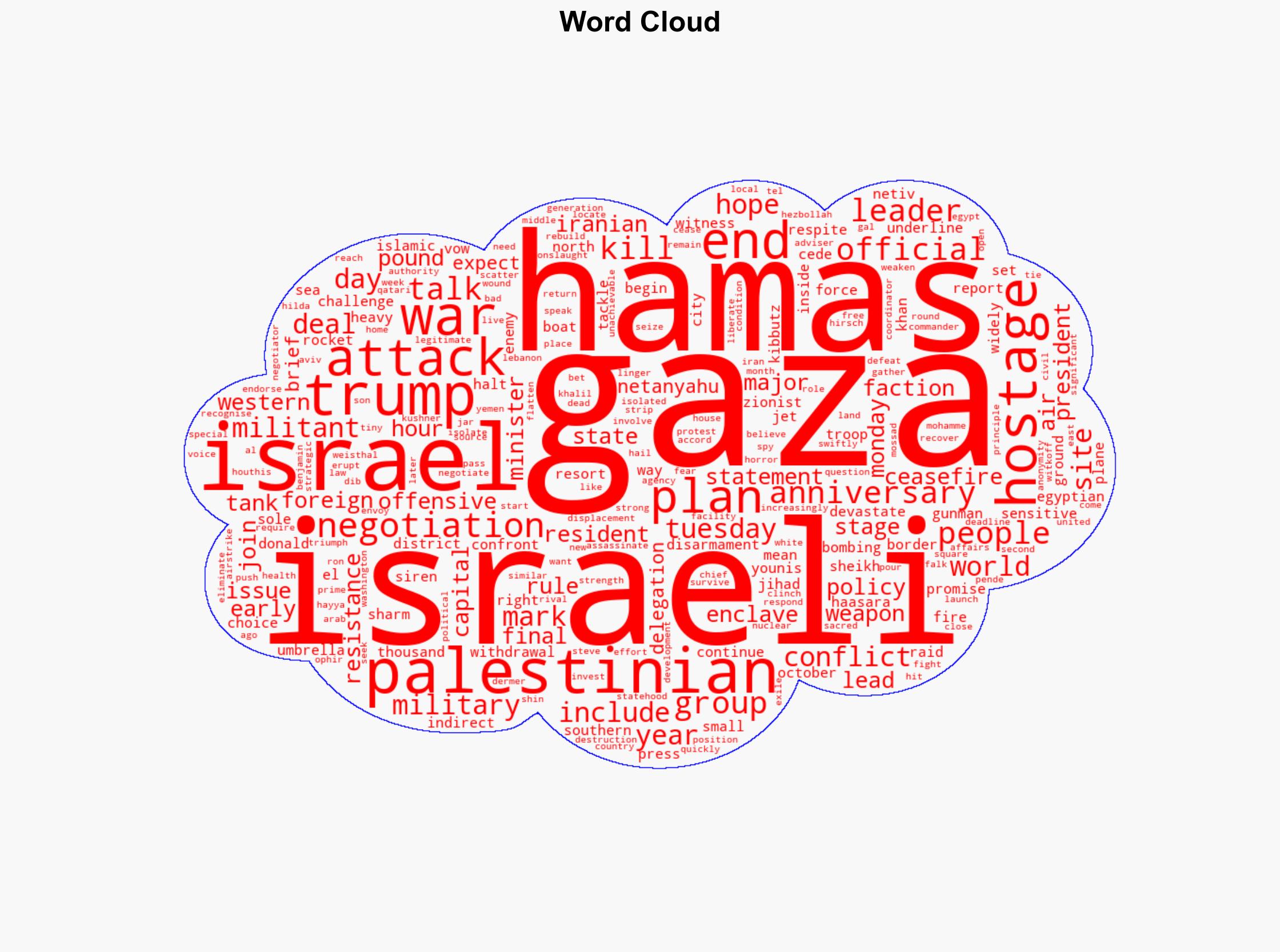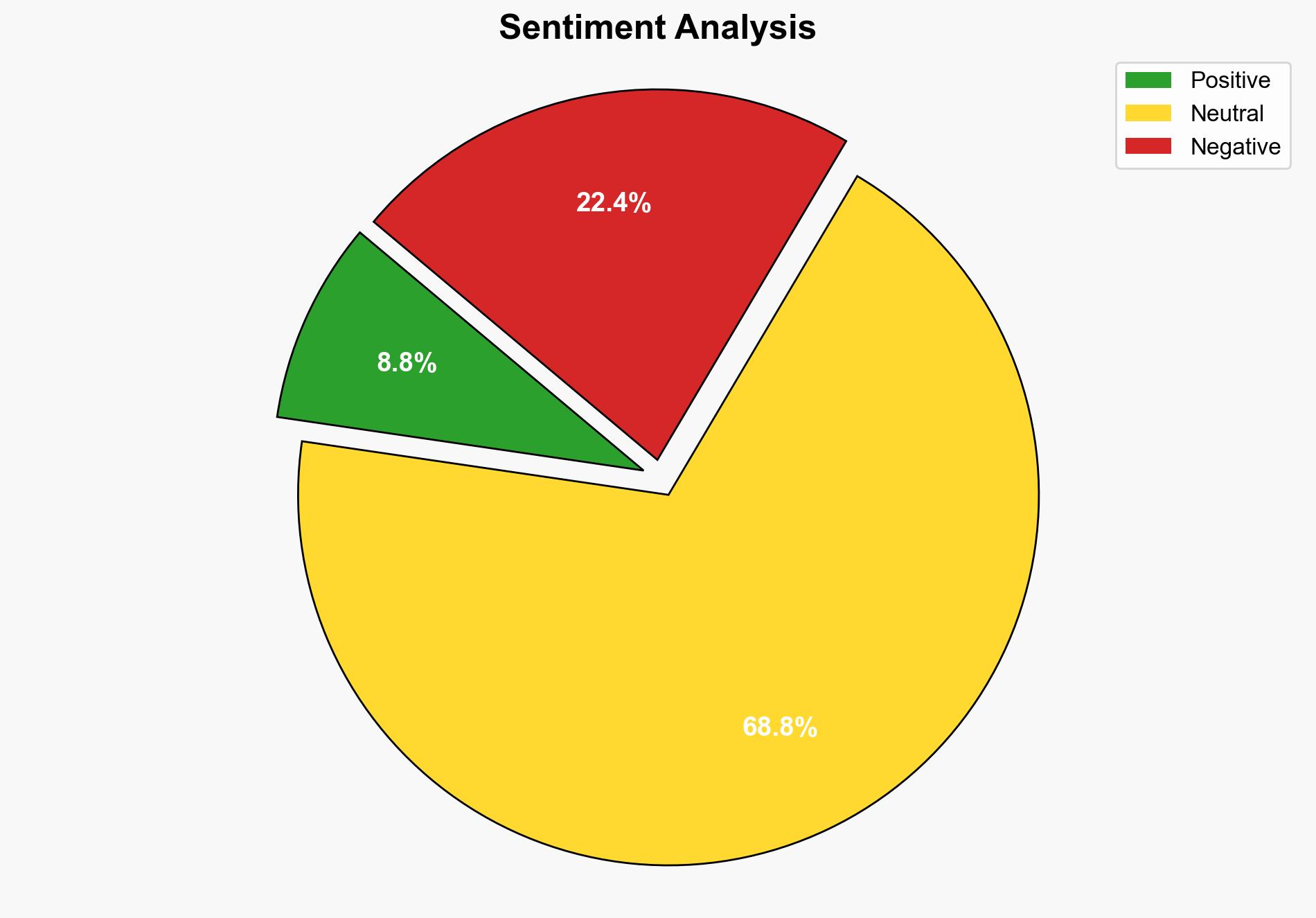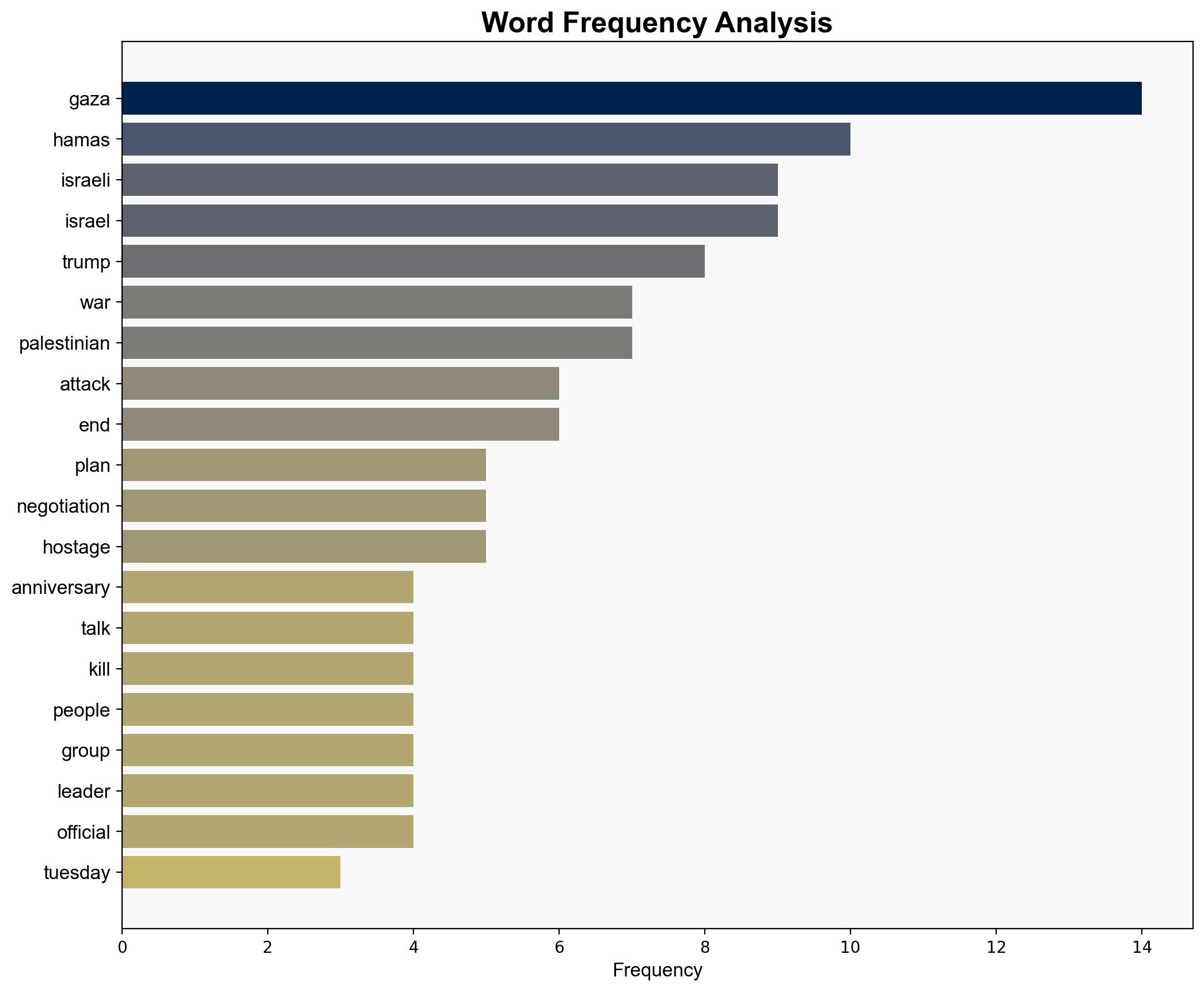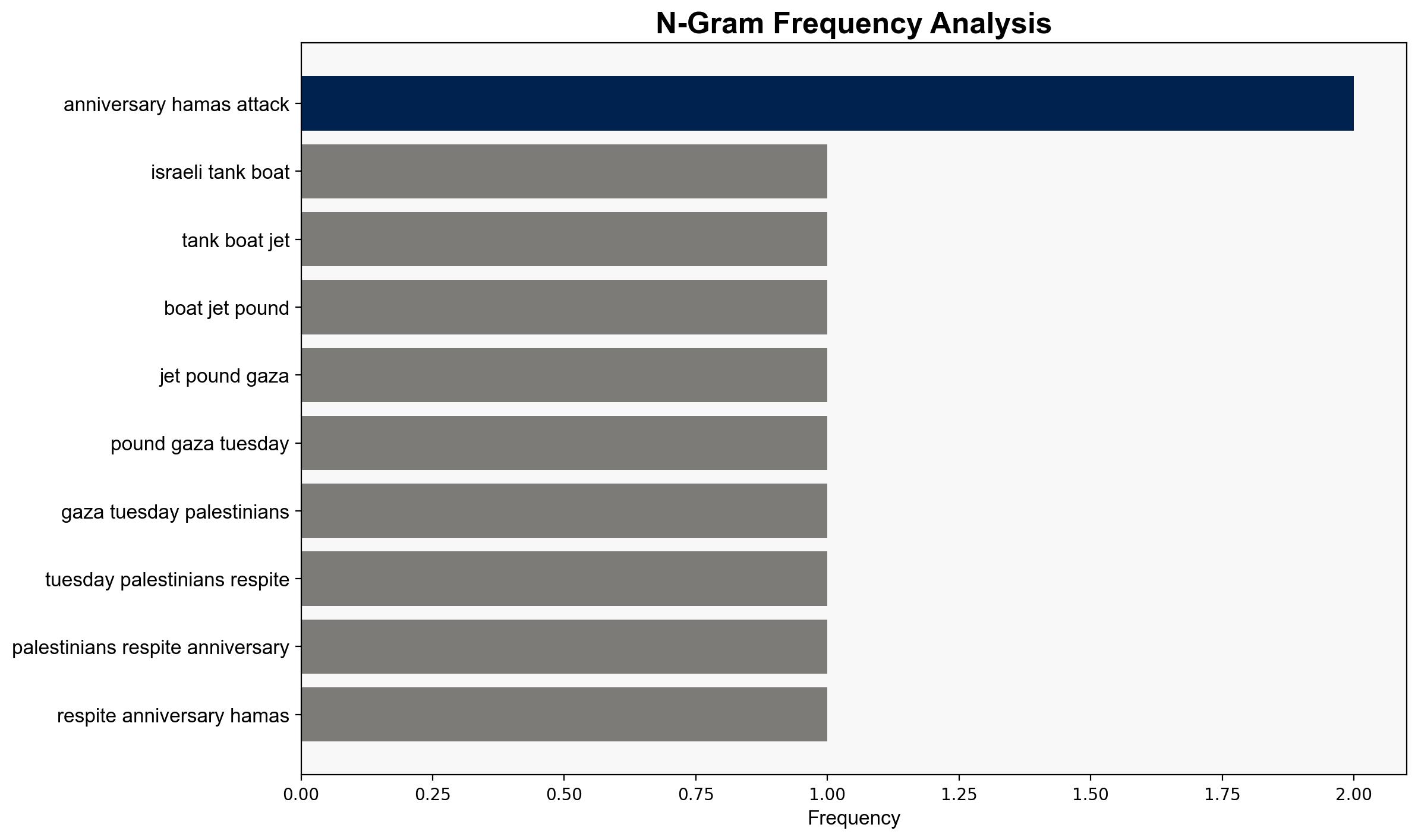Israeli forces shell Gaza on war anniversary Hamas and Israel discuss Trump plan – CNBC
Published on: 2025-10-07
Intelligence Report: Israeli forces shell Gaza on war anniversary Hamas and Israel discuss Trump plan – CNBC
1. BLUF (Bottom Line Up Front)
The most supported hypothesis is that the current military actions and negotiations are part of a strategic maneuver by Israel to strengthen its negotiating position while simultaneously addressing security threats from Gaza. This hypothesis is supported by the timing of the offensive and the involvement of high-level negotiations. Confidence level: Moderate. Recommended action: Monitor the negotiations closely and prepare for potential escalation if talks fail.
2. Competing Hypotheses
1. **Hypothesis A**: The Israeli military offensive is primarily a strategic move to enhance its position in negotiations with Hamas and other Palestinian factions, leveraging the Trump plan as a framework for peace.
2. **Hypothesis B**: The offensive is a reactionary measure to immediate security threats posed by rocket fire from Gaza, with negotiations being a secondary consideration.
Using ACH 2.0, Hypothesis A is better supported due to the coordinated timing of the military actions with the start of negotiations, suggesting a deliberate strategy rather than a purely reactive stance.
3. Key Assumptions and Red Flags
– **Assumptions**:
– Israel believes that military pressure will lead to more favorable negotiation outcomes.
– Hamas is willing to negotiate under pressure.
– **Red Flags**:
– The potential for misinterpretation of intentions by either side could lead to escalation.
– Lack of transparency in negotiation details raises questions about the true objectives of both parties.
4. Implications and Strategic Risks
– **Implications**:
– Successful negotiations could lead to a temporary ceasefire, reducing immediate regional tensions.
– Failure could result in increased violence and further destabilization of the region.
– **Strategic Risks**:
– Escalation could draw in regional actors like Iran and Hezbollah, complicating the conflict.
– Economic impacts on Gaza could exacerbate humanitarian issues, increasing international pressure on Israel.
5. Recommendations and Outlook
- Encourage diplomatic engagement by international actors to support the negotiation process.
- Prepare contingency plans for potential escalation, including humanitarian aid and regional security measures.
- Scenario Projections:
- Best Case: Successful negotiation leads to a lasting ceasefire and framework for peace.
- Worst Case: Breakdown in talks results in full-scale conflict and regional destabilization.
- Most Likely: Temporary ceasefire with ongoing low-level skirmishes and intermittent negotiations.
6. Key Individuals and Entities
– Benjamin Netanyahu
– Donald Trump
– Mohammed Dib
– Hilda Weishal
– Ophir Falk
– Gal Hirsch
7. Thematic Tags
national security threats, counter-terrorism, regional focus, Middle East peace process





